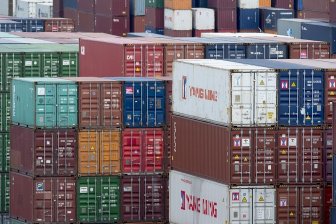Drug crisis ‘unabated’ for First Nations in B.C., doctor says | Globalnews.ca
Indigenous people, especially women, are dying from toxic drugs at disproportionately high rates in British Columbia as the overdose crisis continues “unabated,” nearly seven years after the province first declared a public health emergency, said the top doctor for the First Nations Health Authority.
Dr. Nel Wieman, the acting chief medical officer, said illicit drugs are killing First Nations people at five times the rate of B.C.’s general population.
Read more:
2,300 British Columbians died from toxic drug supply in 2022
Read next:
Health Canada reviewing safety of breastfeeding drug domperidone
That figure rose to 8.8 per cent for First Nations women, specifically, compared with non-Indigenous women in the province in the first half of 2022, she said.
She noted that number contrasts with the overall toll for the province, which shows 79 per cent of those who died from toxic drugs last year were male.

Wieman’s remarks came as B.C.’s chief coroner released data Tuesday showing suspected drug toxicity claimed 2,272 people last year.
B.C.’s exemption to federal drug laws also took effect Tuesday. The three-year pilot project allows adults to carry up to 2.5 grams of certain illicit substances without fear of being arrested or having their drugs confiscated by police.
The underlying reasons for the increased impact of the toxic drug crisis on Indigenous people in B.C. are “complex and varied,” Wieman said.
Read more:
First step or misstep? Mixed reaction to B.C. drug decriminalization
Read next:
First step or misstep? Mixed reaction to B.C. drug decriminalization
They include intergenerational trauma stemming from Canada’s residential school system and the apprehension of Indigenous children for placement in government care, along with a lack of access to culturally safe mental health and substance use supports, she said.
“There are also the impacts of ongoing events, including the discovery of the unmarked graves of children who attended residential schools, various climate change emergencies and the COVID-19 pandemic,” Wieman told a news conference where the annual statistics were released.

Substance use and mental health are closely linked, she said. People use substances to change how they feel, and the health authority’s response to the crisis involves helping people develop healthier coping mechanisms while expanding harm reduction and treatment options rooted in Indigenous values and culture.
“We recognize that seeking treatment alone, in the standard western format, may not meet the needs of all First Nations people,” Wieman said.
“Offering treatment that’s grounded in culture and ceremony addresses (that), addressing the underlying trauma will have a better longer-term outcome.”
Read more:
B.C.’s 3-year experiment with drug decriminalization starts Tuesday
Read next:
New long-term care home standards highlight ‘time is of the essence,’ authors urge
Chief Don Tom, vice-president of the Union of B.C. Indian Chiefs, similarly said substance use among Indigenous people is often rooted in trauma from ongoing racism and centuries of colonialization.
“B.C. and Canada must act urgently to fund meaningful healing and supports, especially initiatives by Indigenous people for Indigenous people, and end discrimination in the health-care system,” Tom said in a statement.
Wieman said many people have died while using drugs alone, in private homes, where no one was around to call for help.
“Stories have been shared with us of women who used substances privately, because of the fear they have of losing their children or personal supports.”
The illicit drug supply is “unpredictable and so incredibly dangerous that people risk their lives by accessing it even once,” Wieman said.
Chief coroner Lisa Lapointe said Tuesday that a range of measures are urgently needed to address the crisis, including expanded access to safe prescription alternatives, drug-checking services, overdose prevention sites and a “continuum of care” involving treatment, recovery and medical and mental health support options.
© 2023 The Canadian Press
For all the latest Health News Click Here
For the latest news and updates, follow us on Google News.




